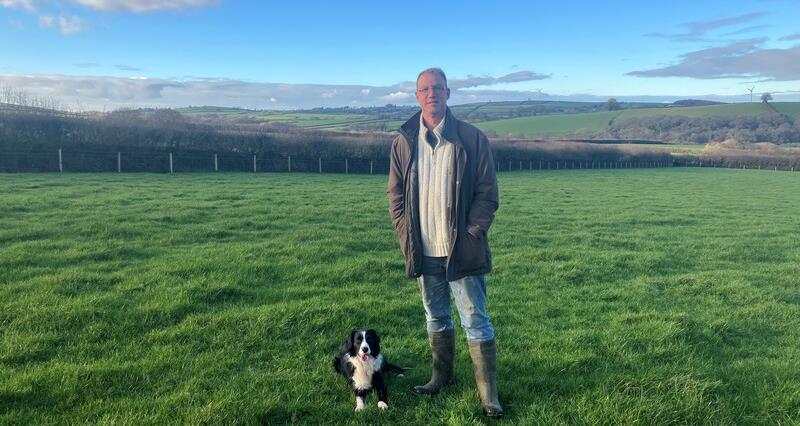Farming on the Devon and Cornwall border, and situated on the edge of the Tamar Valley AONB, we have to work with the environment rather than against it.
Our 290 acres comprise almost 60 fields, all of which have earth bank hedges around them. This gives us the ideal opportunity to increase carbon capture by increasing a resource already present on the farm.
Some areas of hedgerow are being left untrimmed each year while others are untouched for two or three years before cutting.
“We have to work with the environment rather than against it."
Livestock farmer Tim Baker
In 2020, we restored a hedgerow on some recently purchased land and planted 600 native hedge plant whips with more planned for this year.
The small fields provide ideal paddocks for the farm’s 60 Stabiliser X suckler cows with all their calves reared to finishing.
Using high profit index bulls to increase carcass weights and reduce finishing times, our beef animals are ready to go between 17 and 23 months of age.
The benefits of self-sufficiency
We have farmed organically since 2005, with a focus on sustainability.
100% of the feed needed for the livestock is produced on farm eliminating all transport emissions for delivering feeds.
Red clover silage and arable silage containing peas, barley and vetch supply us with home grown protein. This helps us reduce costs and avoid the environmental impact of importing soya.
Herbal leys were introduced in 2019 for biodiversity and to increase summer grazing availability. This is working well and we now have 25 acres in the rotation.
We also have a small Solar PV array which helps power the farmhouse and a private water supply for all the livestock needs, keeping our electricity usage costs as low as those of a domestic property.
Working with nature reduces greenhouse gas emissions and helps the environment. By becoming self-sufficient, costs can be reduced and profitability increased.
Improve your business resilience
Many of the climate-friendly actions that Tim has taken to improve his GHG (greenhouse gas) footprint and business resilience can be found in the NFU Livestock Resilience Plan.
Climate-friendly farming is good for business; it can help members achieve better market access, cost reductions, business resilience and consumer approval, alongside reducing greenhouse gas emissions.
The Resilience Plans set out in one place what could be achieved based on what we are asking Government to do for farmers and growers.
Each sector is defining its own priorities, highlighting the member benefits and associated challenges, alongside the support needed from Government, industry and research and development for increased uptake of climate-friendly farming practices.

